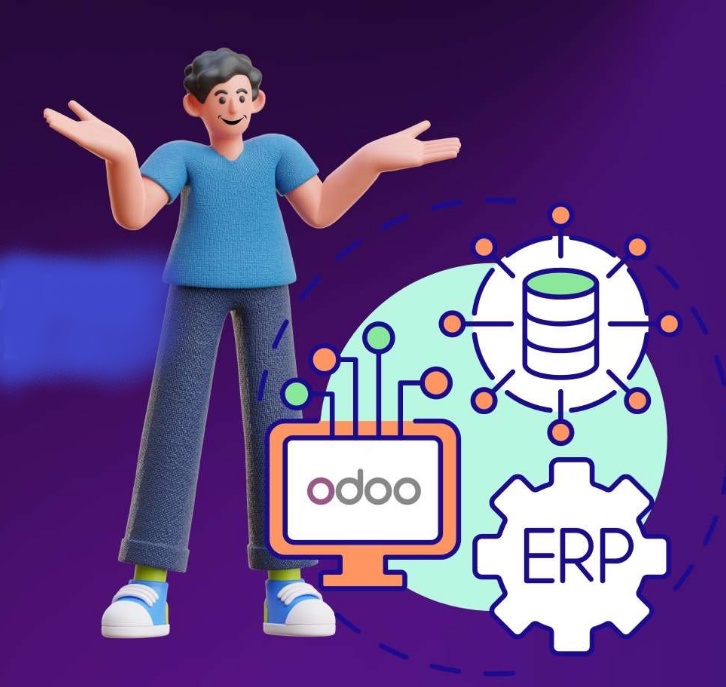In the realm of modern business management, mastering Odoo development has become indispensable for organizations seeking to leverage the full potential of this robust ERP (Enterprise Resource Planning) platform. From streamlining processes to enhancing efficiency and scalability, Odoo development offers a myriad of opportunities for customization and optimization. In this comprehensive guide, we delve into the intricacies of Odoo development, covering key concepts, best practices, and strategies for success.
Understanding Odoo Development
Odoo development involves the creation and customization of modules, workflows, and functionalities within the Odoo framework to align with specific business requirements. Whether it's extending existing features, integrating with third-party systems, or building custom applications, Odoo development empowers organizations to tailor the ERP solution to their unique needs effectively.
Key Concepts in Odoo Development
-
Modules: At the core of Odoo development are modules, which encapsulate specific business logic and data models. Understanding how to create, modify, and structure modules is essential for building tailored solutions that address specific business needs.
-
ORM (Object-Relational Mapping): Odoo's ORM simplifies database interactions by abstracting the complexities of SQL queries. Mastering ORM techniques enables developers to manipulate data efficiently and maintain consistency across the application.
-
Views and Widgets: Views define the presentation layer of Odoo applications, specifying how data is displayed and interacted with by users. Familiarity with different types of views and custom widgets allows developers to create intuitive and user-friendly interfaces.
-
Business Logic: Implementing business logic within Odoo modules involves defining rules, workflows, and automation processes that govern system behavior. Whether it's enforcing validation rules, triggering actions based on events, or scheduling automated tasks, understanding how to encapsulate business logic is fundamental to Odoo development.
Best Practices in Odoo Development
-
Modular Development: Adhering to modular development principles promotes code reusability, maintainability, and scalability. Breaking down complex functionalities into smaller, self-contained modules enhances flexibility and facilitates easier collaboration among development teams.
-
Documentation: Comprehensive documentation is paramount for ensuring the clarity, understandability, and maintainability of Odoo projects. Documenting code, module functionalities, and development processes facilitates knowledge transfer, troubleshooting, and future enhancements.
-
Testing and Quality Assurance: Rigorous testing practices, including unit testing, integration testing, and user acceptance testing, are essential for validating the correctness and reliability of Odoo applications. Prioritizing quality assurance throughout the development lifecycle minimizes the risk of bugs, errors, and regressions.
-
Version Control: Leveraging version control systems such as Git enables developers to track changes, collaborate effectively, and manage codebase revisions efficiently. Maintaining a disciplined approach to version control enhances code transparency, collaboration, and accountability.
Strategies for Odoo Support and Maintenance
-
Proactive Monitoring: Implementing monitoring tools and processes allows organizations to proactively identify and address potential issues before they escalate into critical problems. Monitoring system performance, resource utilization, and error logs enables timely intervention and optimization.
-
Regular Updates and Patch Management: Staying current with Odoo updates, security patches, and bug fixes is crucial for ensuring system stability, security, and compliance. Establishing a regular update cadence and patch management strategy minimizes vulnerabilities and enhances the overall reliability of Odoo deployments.
-
User Training and Support: Providing comprehensive training and ongoing odoo support for end-users fosters user adoption, proficiency, and satisfaction. Investing in user education programs, knowledge bases, and helpdesk support empowers users to leverage Odoo effectively and maximize productivity.
-
Continuous Improvement: Embracing a culture of continuous improvement enables organizations to evolve and optimize their Odoo implementations over time. Soliciting feedback from users, monitoring key performance indicators, and prioritizing enhancement initiatives facilitate iterative refinement and innovation.
In conclusion, mastering Odoo development requires a deep understanding of key concepts, best practices, and strategies for success. By embracing modular development principles, prioritizing documentation and testing, and adopting proactive support and maintenance practices, organizations can unlock the full potential of Odoo to drive efficiency, innovation, and business growth.


No comments yet